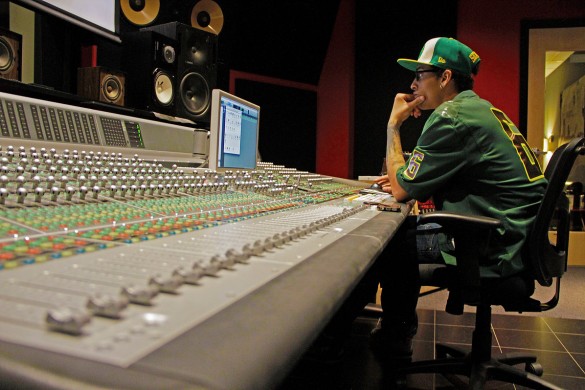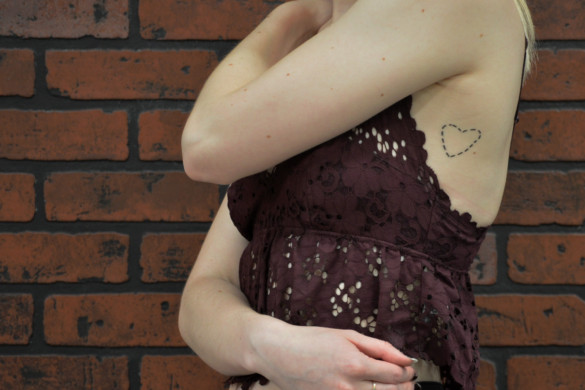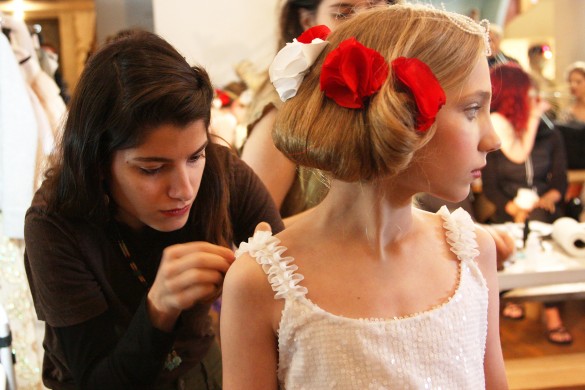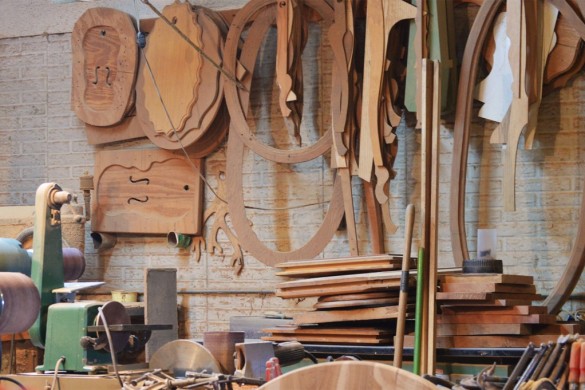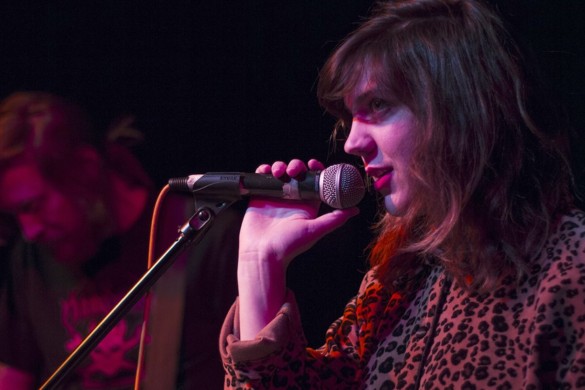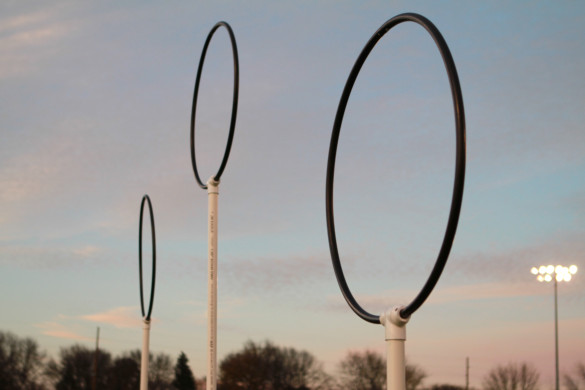Words by Kyle Stratton
The passing years have seen the many neighborhoods of Chicago reinvent and revitalize themselves with an almost conscious ingenuity. On many streets, patterns of old and new emerge in the buildings that line them. On North Southport Avenue, however, one building, eschewing the divide between vintage and modern, draws the eye immediately: the Music Box Theatre.
Inside, a close-knit crew of young film lovers drifts from room to room, flipping on lights and warming up projectors. A cavernous yet dignified silence hangs like a thick haze. There are no patrons just yet; the first showing of the afternoon does not begin for another hour or so. The quiet solemnity of it all evokes a great cathedral, pays homage to the history of the place.
Completed in 1929, the Music Box seated 800 viewers in a small but lavish auditorium. With twinkling “stars” in the ceiling and Romanesque statues lining the walls, it offered a taste of old-world luxury despite its relatively small size compared to other Chicago theaters of the time. To accommodate both sound and silent pictures, the theater came equipped with both state-of-the-art sound equipment and a full orchestra pit.
The Music Box enjoyed several decades of prosperity, but dwindling audiences and shifting tastes left it drifting aimlessly in the 1970s. After several failed attempts at finding a new niche, the management sold the theater in 1982 to a pair of passionate film aficionados who repositioned it as a gathering place for cinephiles, offering vintage classics, cult hits, indie fare, and foreign films. At a time when VHS and other home video formats were in their infancy, finding a way to watch such films was often next to impossible, so it was here that the Music Box found its new purpose.
Today, the Music Box Theatre continues to focus on these markets with belief that films are best enjoyed in a community setting. In an era of rapid change, it stands as both a monument to the past and a glimpse into the future. General manager Ryan Oestreich describes the Music Box of today as a “repertory house” with film choices dictated both by the artistic hegemony (i.e., film festivals) and the theater’s regular viewers.
“At these festivals we get a sneak peek of films that we know are going to be coming out down the road and get to go after certain films that we know would work great for the Music Box and the audience that we’ve built,” Oestreich says.
This relationship between the theater and its audience allows for the experimentation Oestreich believes is key to finding the right films.
“Some years back, we started to play some animated films from Japan, and it really clicked,” Oestreich recalls. “Our audiences really liked it. There was this niche audience that really wanted that, so we just continued and expanded. We’ve based it on what we’ve grown, but we’ve also experimented.”
In a way, the Music Box Theatre offers moviegoers a taste of the film festival circuit right at home, often drawing similar crowds. “They have a curiosity for film,” Oestrich says. “They have an appetite for film that’s a little bit more interesting, more experimental. They’re more open to trying different things.”
The discerning yet open-minded crowds are perhaps the most crucial element in defining boutique establishments like the Music Box, as their passion and sense of community creates a viewing experience unlike that offered at the traditional cineplex. As viewers around the country continue to vent their frustrations with the Hollywood machine all across the web, theaters like these offer the perfect opportunity to break away and reconnect with what film is all about.
Bob Moss, a Chicago-based film blogger, writer, and teacher at Northwestern University’s Osher Lifelong Learning Institute, believes that the traditional, community-focused experience of the Music Box is key to understanding and appreciating film and often sends his students there for screenings. Moss has attended the theater since 1953, a time when tickets were 10 cents and local businesses offered coupons at the counter. Even then, the theater stood out.
“It was very much a part of the community,” Moss recalls. “It was not just a theater stuck there.”
Today, the theater provides the authentic experience Moss wants for his students. Many other theaters disposed of their old projectors when switching over to digital projection, but the Music Box thought ahead. As a result, it can still show older films as they were originally intended to be seen.
Moss recalls urging the theater’s staff to show the Hungarian Holocaust film Son of Saul, which was originally printed on now largely obsolete 35 millimeter film.“They were one of the few theaters that could show it in the proper format,” Moss notes. “The feeling was just so different. You really felt that you were in that room with the ovens. That was what the director intended.”
And that is what the Music Box intends as well. The theater’s staff targets the moviegoer not satisfied with the experience of modern cinema, looking for that special something so many others can’t provide.
“I think the fact that there are other theaters across the country that have survived through all the transitions of cinema just speaks that there are people out there who understand how they like to watch movies and where they like to watch movies,” Oestreich muses. “They have that appreciation. If you really like movies, this is a different experience.”
Just before two o’clock, a few seniors drift into the ornate lobby. Two young couples appear soon after. Before long, the theater boasts a crowd as varied as its neighborhood. As far as the crew of the Music Box Theatre is concerned, that’s precisely how it’s meant to be.


